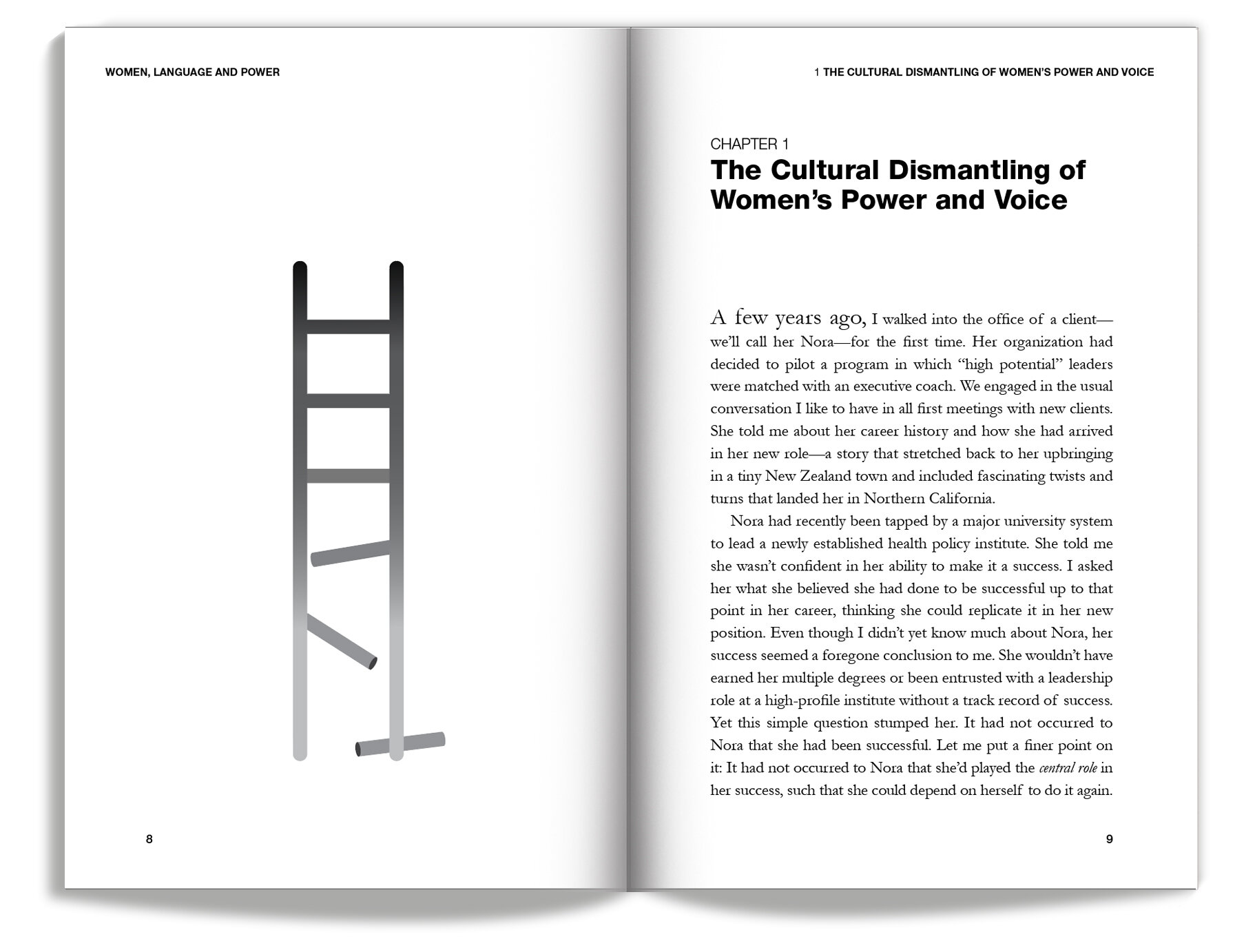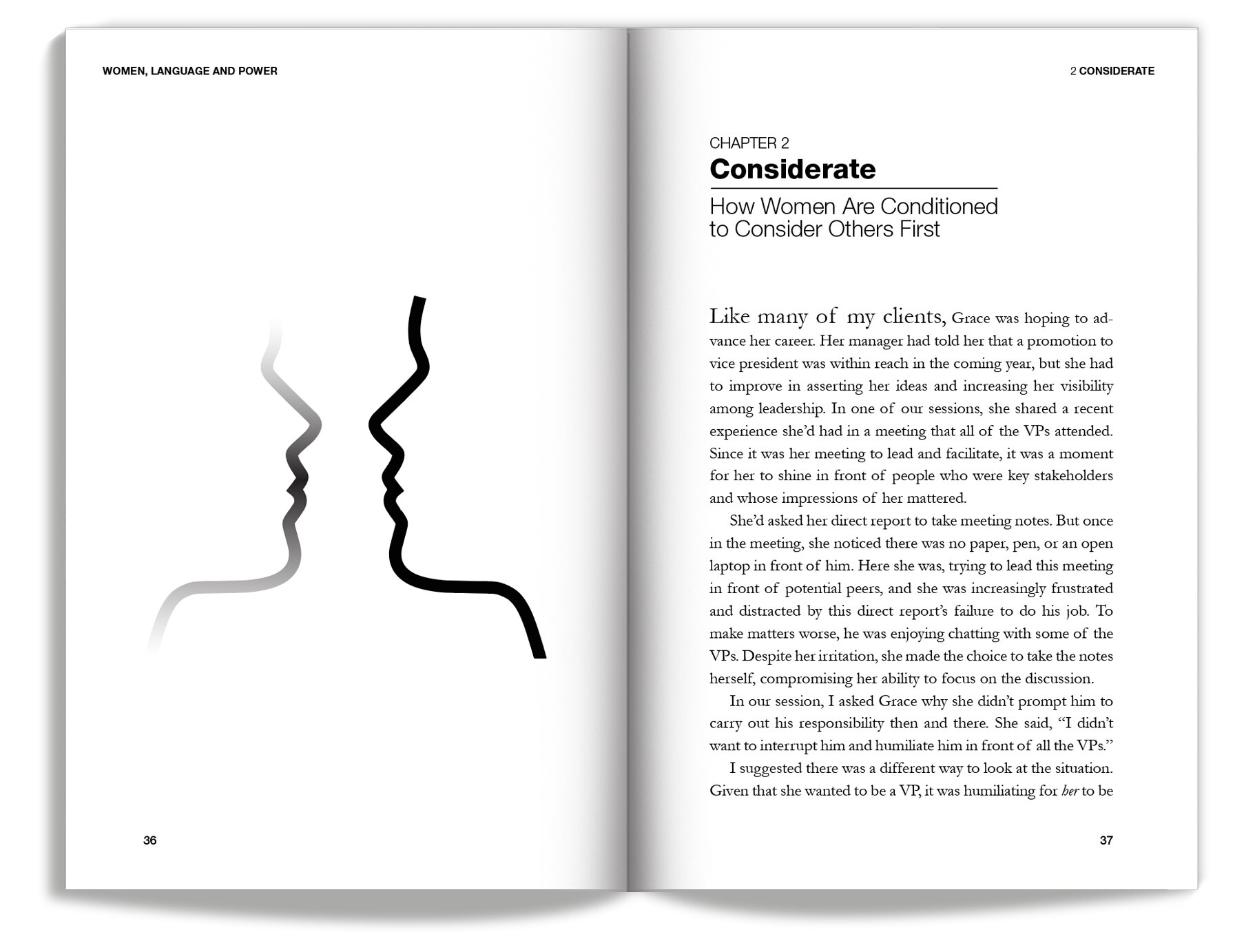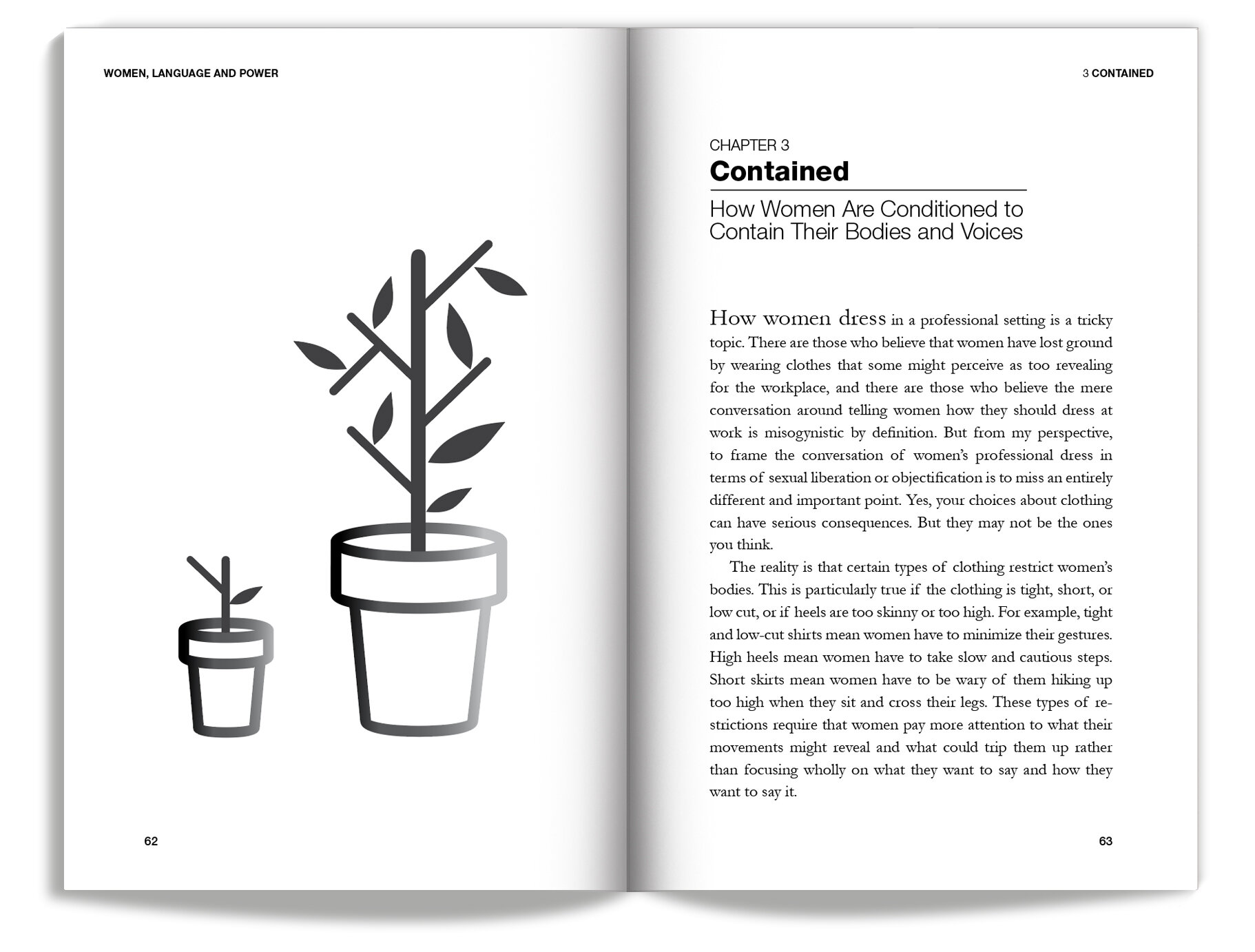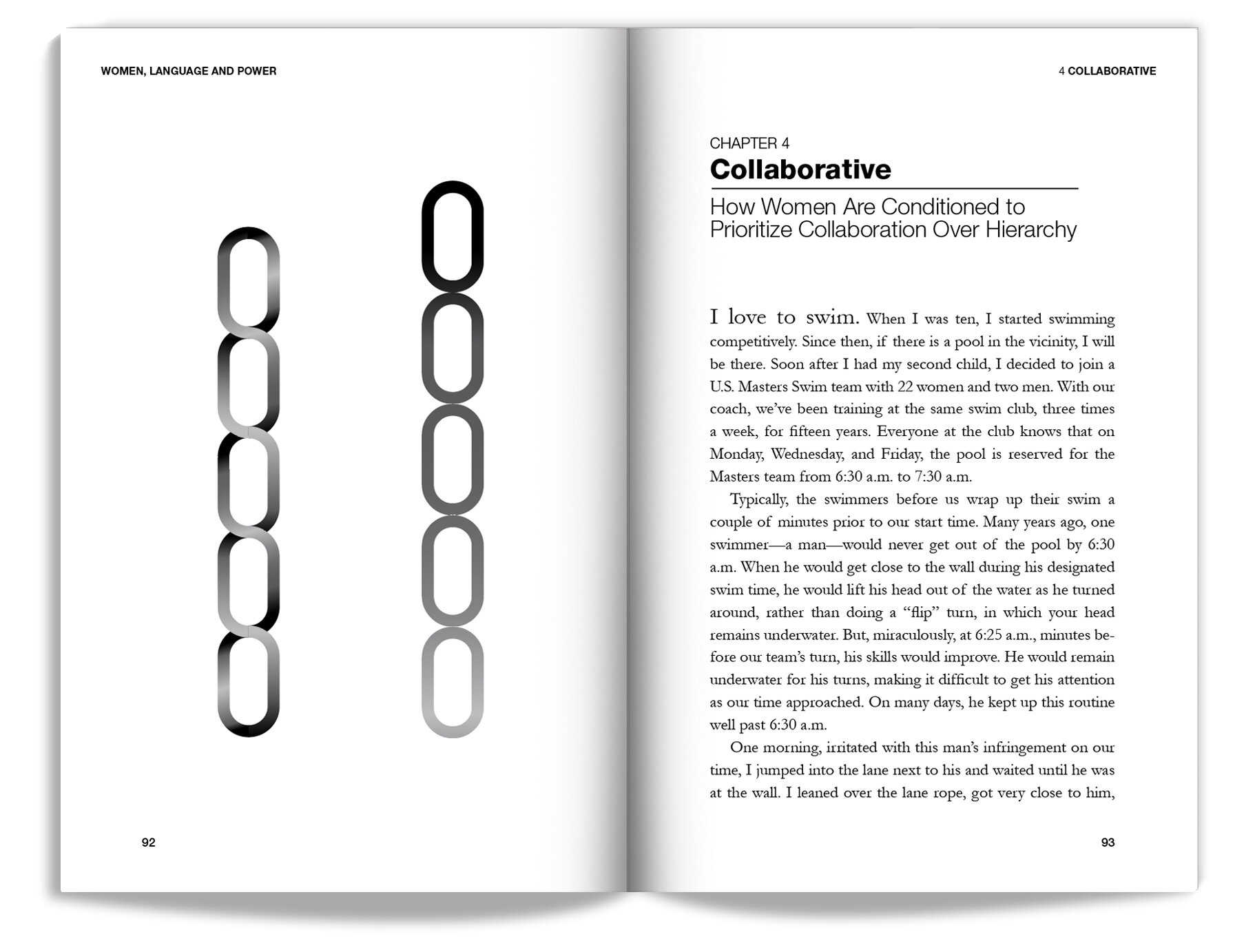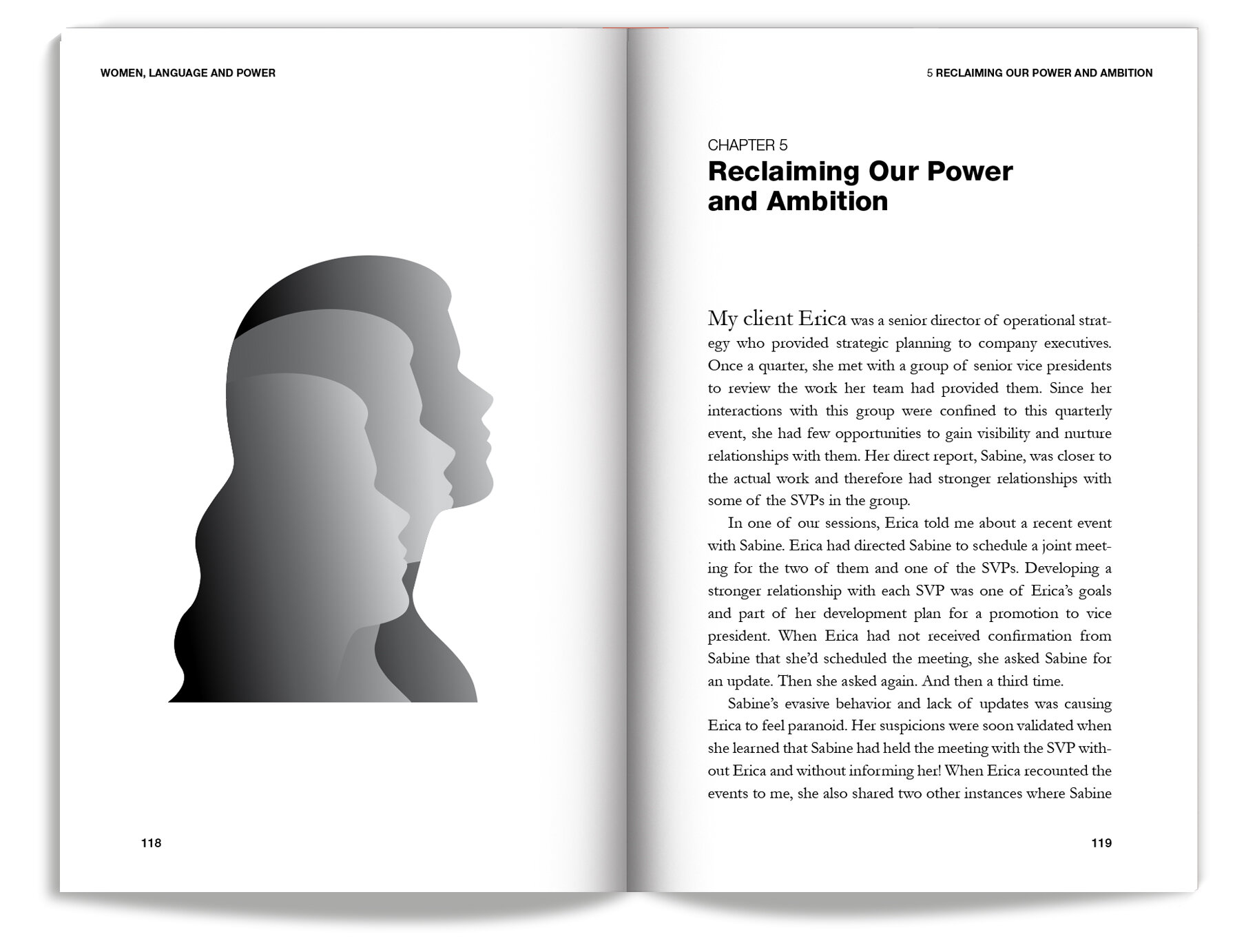Language is one of women’s most essential tools for acting on their power and achieving their ambition.
Women, Language, and Power is a must-read for every woman striving to break free from the limits placed on her by society and language. Too often, women are taught to speak in ways that undermine their own authority—whether it’s second-guessing their ideas, downplaying their accomplishments, or being overlooked in business settings.
Women, Language, and Power helps women communicate more effectively, create a stronger impression, and increase their influence in both their professional and personal lives. Essentially, it's about maximizing the positive outcomes and presence they bring to work every day.
This empowering book by Susannah Baldwin explores the intersection of gender, power, and communication, Women, Language, and Power reveals the subtle but powerful ways our words shape the perception of our abilities and potential. Women, Language, and Power offers the tools and insights you need to embrace your voice, navigate the challenges women face in the business world, and claim your rightful place as a confident, influential leader.


